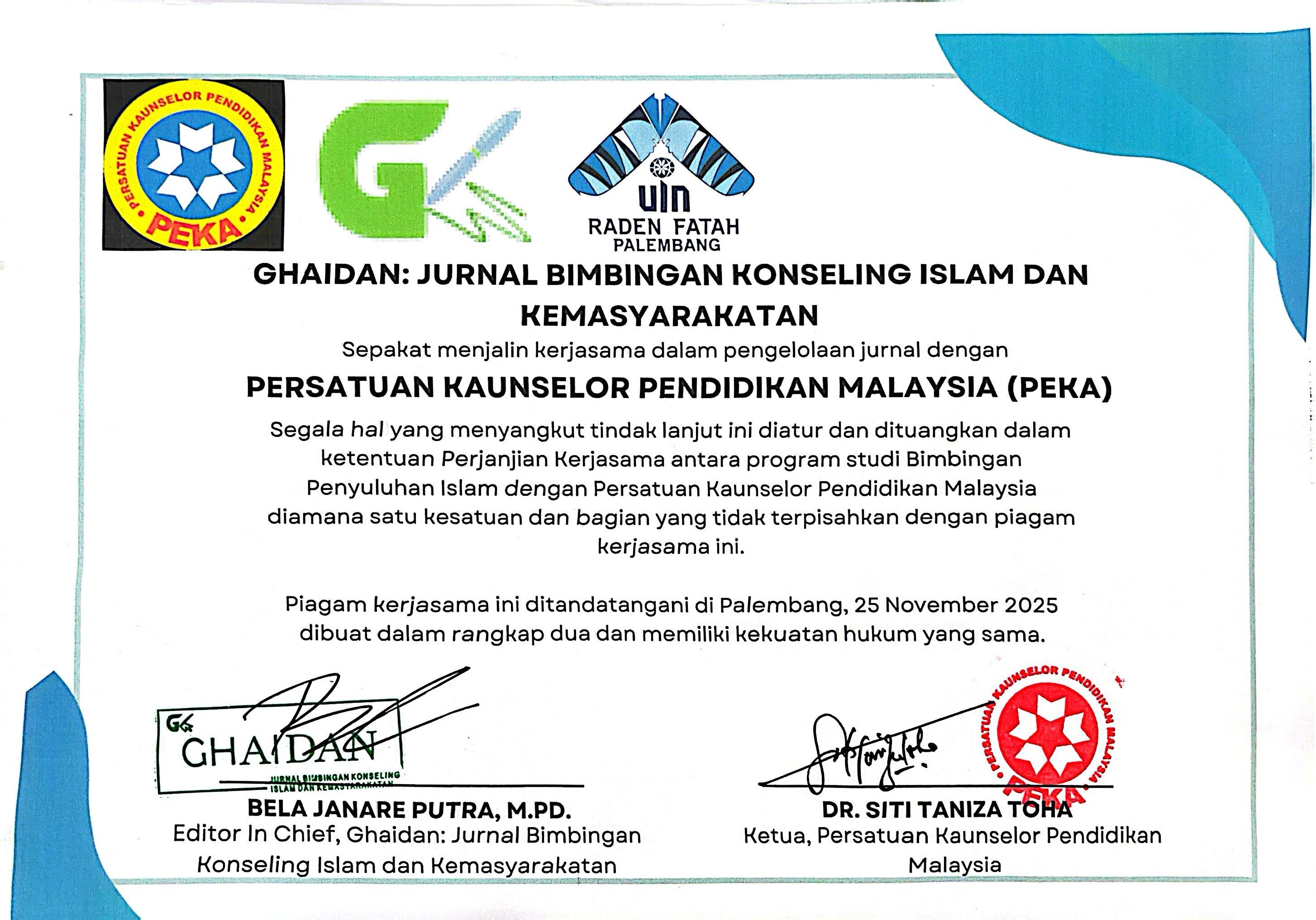Konseling Kelompok Teknik Self Management dan Teknik Realita Untuk Mereduksi Gaya Hidup Hedonis
DOI:
https://doi.org/10.19109/ghaidan.v7i2.19316Abstract
Hedonic lifestyle usually occurs in people who live in the city because they are pampered with all the facilities available, such as malls, restaurants, cafes, apartments, hotels and other facilities which are of course not far from home so they are very easy to reach for all groups, especially students SENIOR HIGH SCHOOL. In an effort to reduce hedonic lifestyles in students who pay attention to the context of time and applicability, especially in school settings, the counseling services that will be used are group counseling services, self-management techniques and reality techniques. This research aims to determine group counseling self-management techniques and reality techniques to reduce students' hedonic lifestyles. The type of research used is a quantitative research method, repeated measure experimental design. The reason researchers use this experimental pattern is to see the effects of a treatment on other variables. This research has a pretest and multiple posttest design and uses data analysis methods: descriptive analysis, normality test, sphericity test, and parametric statistics with one-way Anova test.
References
Amti, Erman, and Prayitno. “Dasar-Dasar Bimbingan Dan Konseling.” Rineka Cipta, 1999. Google Scholar
Chaney D. Lifestayle, Sebuah Pengantar Komprehensif. Yogyakarta: Jalasutra, 2003. Google Scholar
Febri Yanti, Nur Janah, Nurbaity. “Dinamika Kecenderungan Gaya Hidup Hedonis Dan Perilaku Seks Bebas Pada Remaja Putri.” Jurnal Ilmiah 1, no. 9 (2016): 41. http://dx.doi.org/10.1016/j.tws.2012.02.007.
Fraenkel, Jack R., Wallen, Norman E. How to Design and Evaluate Research in Education. McGraw-Hill Higher Education. New York: McGraw-Hill Companies, 2009. Google Scholar
G. Schiffman, L. Wisenblit. Consumer Behavior Consumer Behavior. Eight. Vol. 27. New Jersey: Pearson Practice Hall, 2015. Google Scholar
Kotler, P, and G Amstrong. Prinsip-Prinsip Pemasaran. Jakarta: Erlangga, 2008. Google Scholar
Kusnanto, M. E. Konseling Kelompok. Konseling Kelompok. Vol. 03. Bandung: ALFABETA, 2014.
Newman, Bobby, and Pamela Ten Eyck. “Self-Management of Initiations by Students Diagnosed with Autism.” The Analysis of Verbal Behavior 21, no. 1 (2005): 117–22. https://doi.org/10.1007/bf03393013.
Safitri, Ani. “Pengaruh Budaya Hedonisme Terhadap Timbulnya Vandalisme Siswa Smk Tri Dharma 3 Dan Smk Yktb 2 Kota Bogor.” Jurnal Teknologi Pendidikan. Kota Bogor, 2012. https://doi.org/10.32832/tek.pend.v1i2.427.
W. Koswara (penerj.). “Teori Dan Praktek Konseling Dan Psikoterapi, Gerald Corey.” Bandung, 1999. Google Scholar
Zulkifli, A. “Gaya Hidup Hedonisme Di Kalangan Mahasiswa Fakultas Ilmu Sosial Dan Ilmu Politik Universitas Mulawarman.” Jurnal Sosiatri-Sosiologi 4, no. 1 (2016): 72–85. Google Scholar





